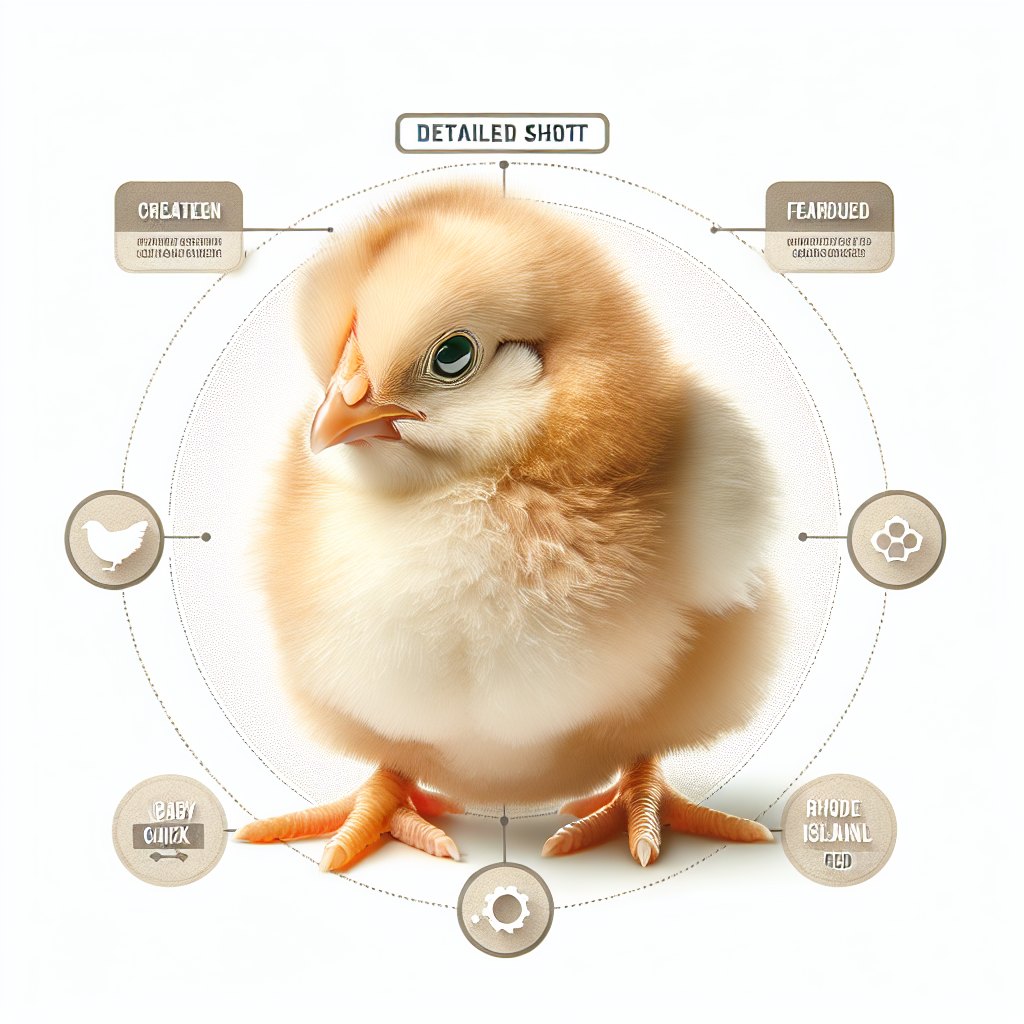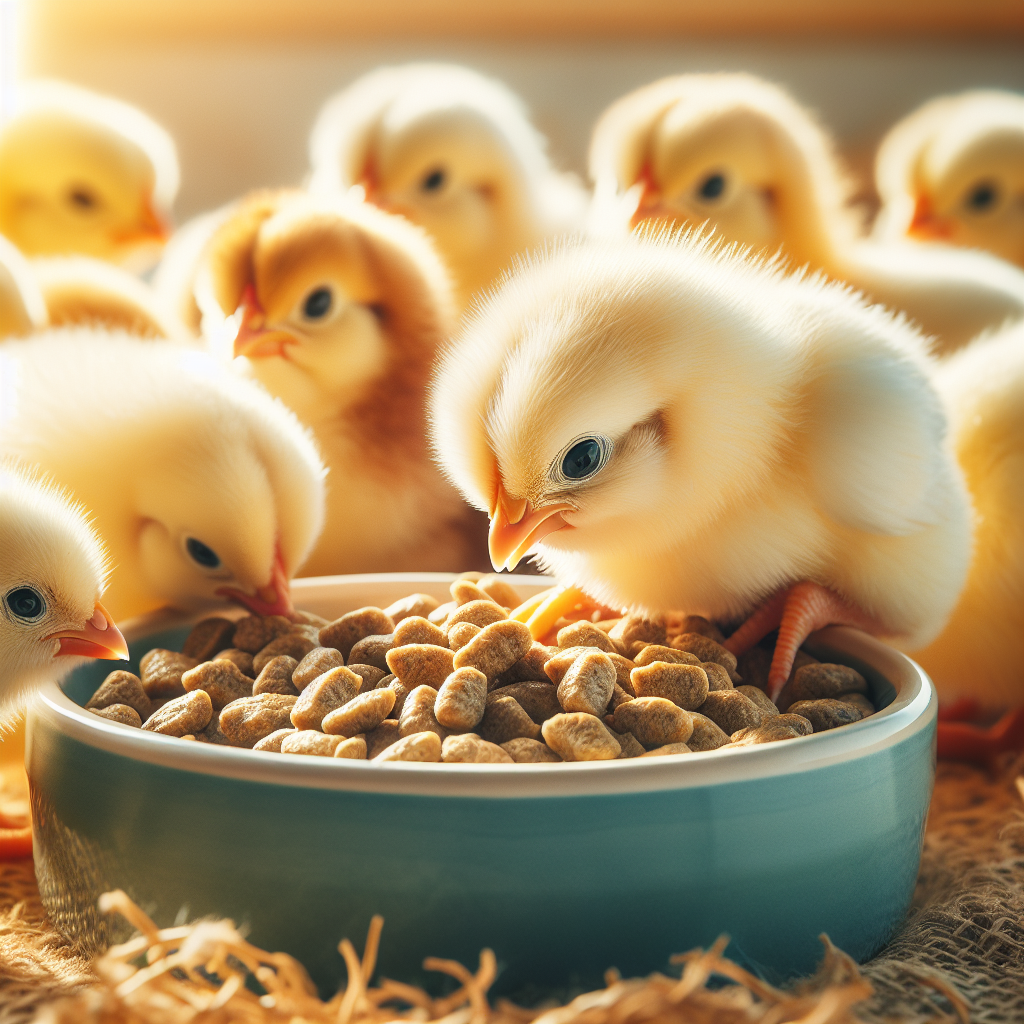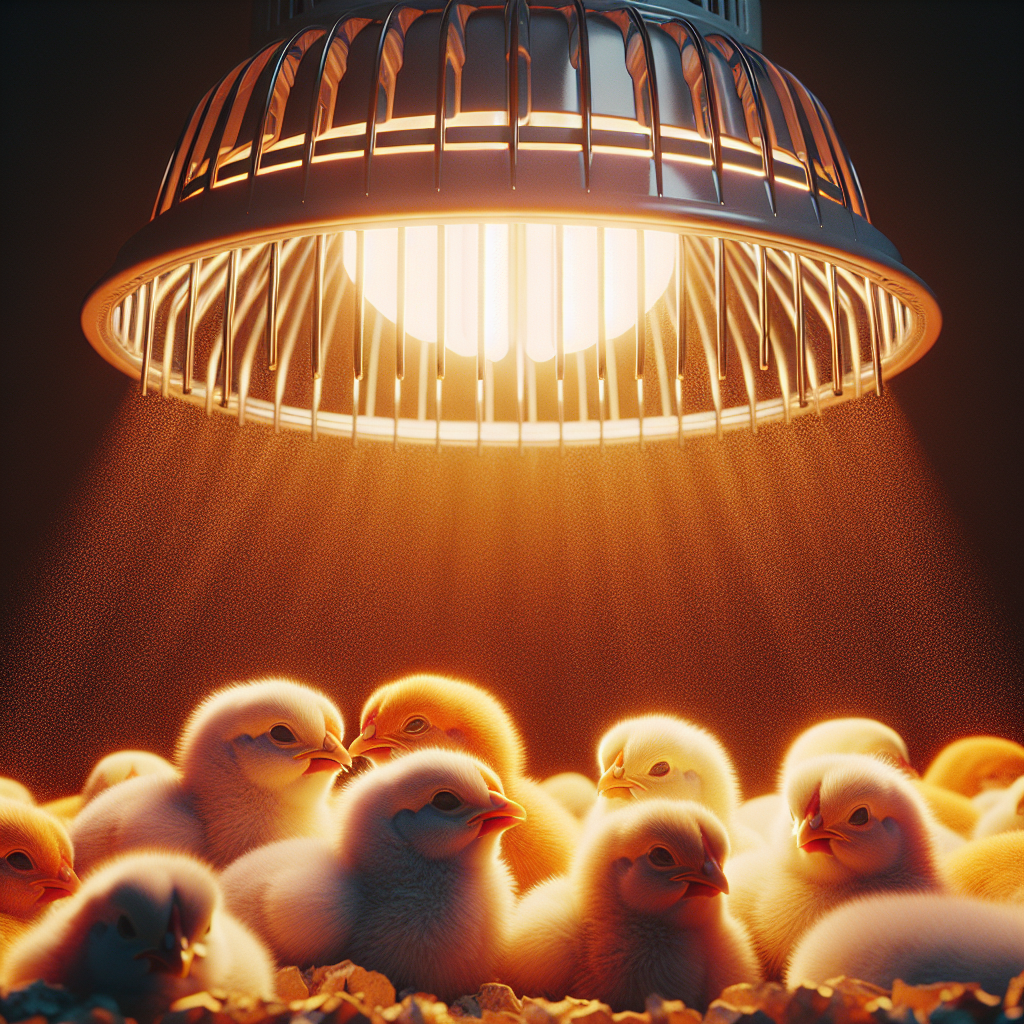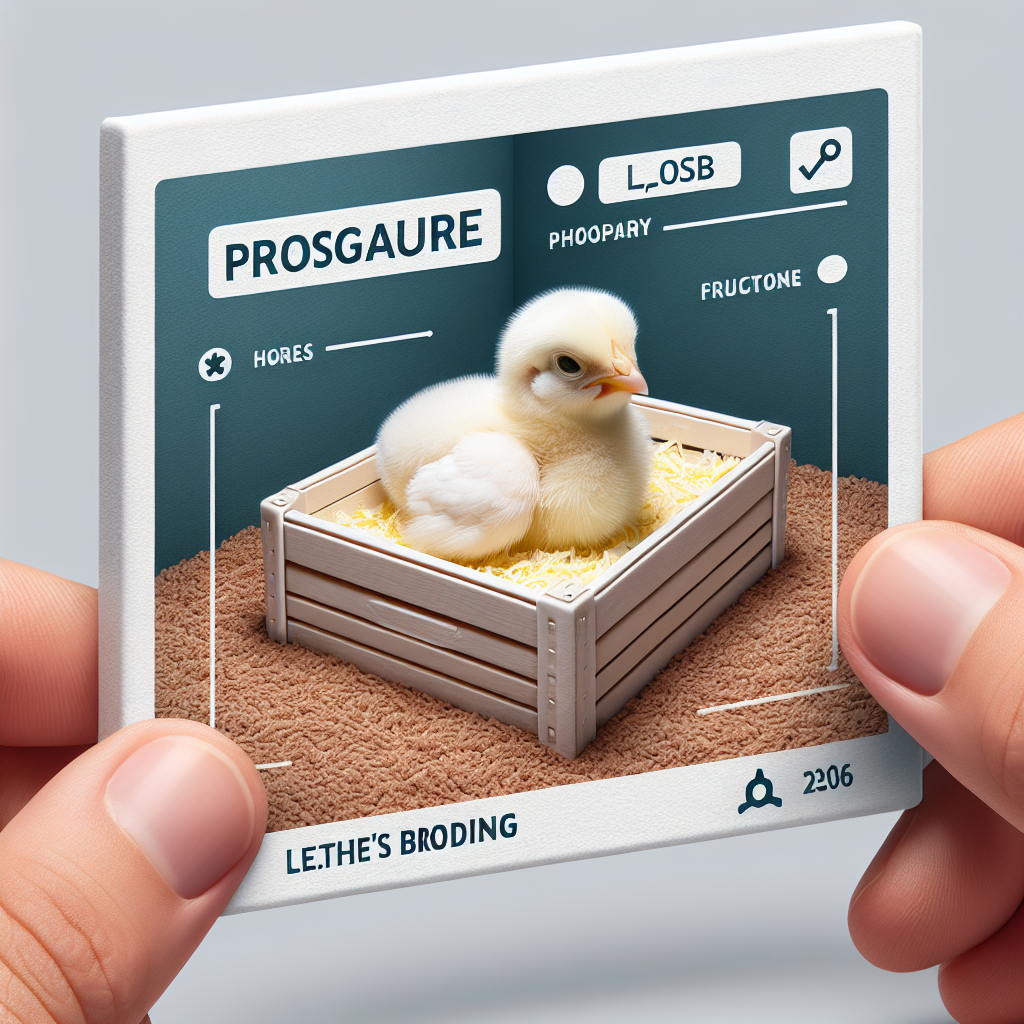If you’ve recently embarked on the delightful adventure of raising baby chicks, you may have wondered if there are certain breeds that require special care. Well, you’re in luck! This article explores whether specific breeds of baby chickens need any unique considerations when it comes to their care. So, whether you have fluffy Araucanas or majestic Rhode Island Reds, you’ll find out if your favorite breed needs a little extra TLC during their early days.
Breeds with Special Dietary Needs
Chickens with protein requirements
Some breeds of chickens have higher protein requirements compared to others. These breeds need a diet that is rich in protein to support their growth and development. It is important to ensure that these chickens are fed a balanced and nutritious diet that includes sources of high-quality protein such as legumes, mealworms, and soybean meal.
Chickens with specific vitamin needs
Certain breeds of chickens may have specific vitamin requirements. For example, vitamin A is essential for the health of their reproductive system, while vitamin D is important for the absorption of calcium and phosphorus. It is crucial to provide these breeds with a diet that is rich in the necessary vitamins either through their feed or through additional supplements.
Chickens with unique dietary restrictions
Some breeds of chickens may have unique dietary restrictions due to health conditions or sensitivities. For instance, certain breeds may be prone to digestive issues and require a specific diet that is low in fat and easy to digest. It is important to cater to these dietary restrictions to ensure the overall well-being and health of these chickens.
Breeds Prone to Health Issues
Chickens prone to respiratory problems
Certain breeds of chickens are more susceptible to respiratory problems, such as respiratory infections or chronic respiratory diseases. It is crucial to provide appropriate ventilation in their housing to prevent the buildup of ammonia and other harmful gases. Regular cleaning of the coop and maintaining good hygiene practices can help minimize the risk of respiratory issues in these breeds.
Chickens susceptible to leg issues
Some breeds of chickens are more prone to leg issues, such as hip dysplasia or leg deformities. These chickens may require additional support in their housing, such as ramps or lower perches, to avoid excessive strain on their legs. It is important to provide proper bedding and flooring to cushion their feet and reduce the risk of leg problems in these breeds.
Chickens with weak immune systems
Certain breeds of chickens may have weaker immune systems compared to others, making them more susceptible to diseases and infections. It is crucial to provide these chickens with a clean and sanitary living environment, along with a balanced and nutritious diet to support their immune system. Regular veterinary check-ups and vaccinations may also be necessary to maintain their health.
Breeds Requiring Special Brooder Setup
Chicks that need lower temperatures
Some breeds of chicks require lower temperatures in the brooder to thrive. These chicks are typically more heat-sensitive and may suffer from heat stress or dehydration if exposed to higher temperatures. It is important to monitor the temperature in the brooder and adjust it accordingly to ensure the well-being of these chicks.
Chicks that prefer higher humidity levels
Certain breeds of chicks thrive in higher humidity levels in the brooder. These chicks may have respiratory systems that are more sensitive to dry air, and maintaining the appropriate humidity level can help prevent respiratory issues. Providing a water source in the brooder or using a humidifier can help create the ideal environment for these chicks.
Chicks with specific lighting requirements
Some breeds of chicks may require specific lighting conditions in the brooder for optimal development. These chicks may benefit from certain light spectrums or specific lighting schedules to mimic natural daylight. It is important to provide appropriate lighting to ensure the healthy growth and development of these chicks.
Breeds with Different Feather Care
Chickens with delicate feathers
Certain breeds of chickens have delicate or easily damaged feathers. It is important to handle these chickens gently and provide them with a safe and stress-free environment to avoid feather damage. Regular grooming and cleaning of their feathers may also be necessary to maintain their health and appearance.
Chickens prone to molting issues
Some breeds of chickens are more prone to molting, which is the natural shedding and regrowth of feathers. During molting, chickens may experience a decrease in egg production and may require additional nutritional support to support feather regrowth. Providing a balanced diet rich in protein, vitamins, and minerals can help these chickens through the molting process.
Chickens with feather color maintenance
Certain breeds of chickens have feather colors that require specific care to maintain their vibrancy. To preserve the color of these feathers, it is important to provide these chickens with a balanced diet that includes specific nutrients that promote feather coloration. Regular grooming and protection from excessive sun exposure can also help maintain the beauty of their feathers.
Breeds with Unique Socialization Requirements
Chicks needing more human interaction
Some breeds of chicks may require more human interaction and socialization to develop into friendly and well-adjusted adult chickens. It is important to spend time handling and interacting with these chicks from an early age to familiarize them with human contact. This can help promote positive behaviors and minimize any potential aggressive tendencies as they mature.
Chicks that prefer being in groups
Certain breeds of chicks thrive when raised in a group or flock setting. These chicks feel more secure and display more natural behaviors when they have companionship. It is important to consider the social needs of these breeds and provide them with adequate group housing and opportunities for social interaction.
Chicks with specific flock dynamics
Certain breeds of chickens have specific flock dynamics and social hierarchies. It is essential to understand the social structure of these breeds and ensure that their housing and living environment can accommodate their natural behaviors. Providing ample space and appropriate nesting areas can help maintain harmony within the flock.
Breeds with Different Space Needs
Chickens needing more room to roam
Some breeds of chickens require more space to roam and explore compared to others. These chickens are more active and may become stressed or frustrated if confined to a small or overcrowded area. Providing a larger outdoor space or free-ranging opportunities can help fulfill their natural instincts and improve their overall well-being.
Chickens that prefer vertical space
Certain breeds of chickens have a natural inclination to climb and perch on elevated surfaces. It is important to provide these chickens with sufficient vertical space in their housing, such as tall roosting bars or platforms. This allows them to engage in their natural behaviors and reduces the risk of stress or boredom.
Chickens that require isolation
Some breeds of chickens prefer solitude or may require isolation due to health or behavioral reasons. It is important to provide separate housing or designated areas for these chickens to ensure they have the necessary space and tranquility they need. This can help reduce stress and promote their overall health and well-being.
Breeds Requiring Special Roosting Arrangements
Chickens that need low roosting bars
Certain breeds of chickens have difficulty jumping or flying and may require lower roosting bars. It is important to provide these chickens with access to roosting areas that are closer to the ground to prevent injuries or discomfort. Lower roosting bars or platforms can help accommodate their physical limitations.
Chickens that require high roosting spots
Some breeds of chickens prefer roosting at higher elevations for various reasons, such as safety or personal preference. It is essential to provide these chickens with roosting areas that are higher off the ground to meet their natural instincts. Providing secure and sturdy higher roosting spots can contribute to their overall well-being.
Chickens with unique roosting preferences
Certain breeds of chickens may have unique roosting preferences, such as roosting in covered or hidden areas. It is important to observe and understand their roosting behaviors to provide them with appropriate housing and roosting arrangements. This can help create a comfortable and secure environment for these chickens.
Breeds with Specific Exercise Requirements
Chickens needing frequent free-ranging
Some breeds of chickens require frequent free-ranging opportunities to fulfill their exercise needs. These chickens are more active and benefit from the exploration of a larger outdoor area. Providing them with daily access to a safe and secure free-ranging space can help ensure their physical and mental well-being.
Chickens that require stimulating toys
Certain breeds of chickens may benefit from the addition of stimulating toys or environmental enrichments in their living areas. These toys can help alleviate boredom, promote natural behaviors, and provide mental stimulation. It is important to choose toys that are safe and appropriate for chickens to prevent any potential injuries or hazards.
Chickens with exercise restrictions
Some breeds of chickens may have physical limitations or health conditions that restrict their exercise abilities. It is crucial to consult with a veterinarian or poultry expert to determine the appropriate exercise regimen for these chickens. Providing a safe and comfortable living environment, along with a balanced diet, can help manage their exercise restrictions while ensuring their overall well-being.
Breeds with Unique Feather Coloring Care
Chickens requiring specific feather care products
Certain breeds of chickens with unique feather coloring may require specific care products to maintain the vibrancy and health of their feathers. Some chickens may benefit from gentle shampoos or conditioners designed for poultry. Regular grooming and protection from environmental factors can also help preserve the color and quality of their feathers.
Chickens with vulnerability to sunburn
Certain breeds of chickens have less pigmentation in their skin, making them more susceptible to sunburn. It is crucial to provide these chickens with adequate shade and protection from direct sunlight, especially during hot summer months. Applying sunscreen formulated for poultry or providing a well-shaded outdoor area can help prevent sunburn and related health issues.
Chickens that need color-enhancing treatments
Certain breeds of chickens have feather colors that can be enhanced through specific treatments or dietary supplements. It is important to research and consult with experts to determine the appropriate methods and products for enhancing the color of these chickens’ feathers. Proper care and attention can help showcase their beautiful and unique plumage.
Breeds that Need Specific Brooding Equipment
Chickens requiring specialized heat lamps
Certain breeds of chicks may have specific heat requirements during the brooding phase. They may benefit from specialized heat lamps that provide precise temperature control. It is important to monitor the temperature in the brooder closely and use appropriate heat lamps to ensure the comfort and well-being of these chicks.
Chickens needing specific bedding materials
Some breeds of chicks may have special requirements when it comes to bedding materials in the brooder. For example, chicks with delicate or sensitive feet may benefit from softer bedding materials such as straw or wood shavings. It is important to choose bedding materials that are safe, absorbent, and suitable for the specific needs of these chicks.
Chickens that prefer particular air circulation setups
Certain breeds of chicks may prefer specific air circulation setups in the brooder. Adequate ventilation is important to maintain a healthy living environment, and certain breeds may benefit from additional air circulation or the use of fans. It is crucial to provide appropriate air circulation while ensuring that the chicks are protected from drafts and extreme temperature fluctuations.
In conclusion, there are indeed specific breeds of chickens that require unique care considerations as baby chickens. From dietary needs to socialization requirements, each breed may have its own set of particular needs that require attention and proper management. By understanding and catering to the individual needs of different chicken breeds, we can provide them with the best possible care, ensuring their health and well-being throughout their lives.




